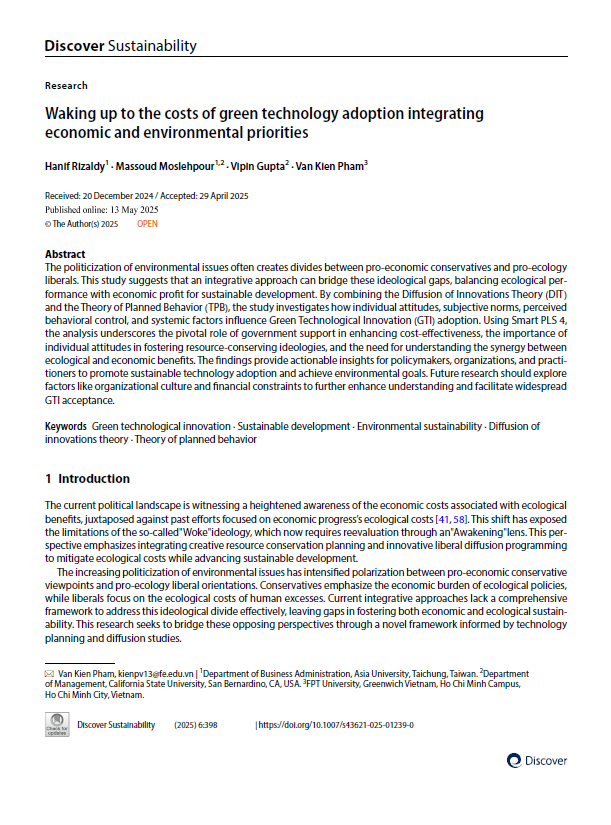
Keyword(s)
Author(s)
Hanif Rizaldy, Massoud Moslehpour, Vipin Gupta, Van Kien Pham
Country(ies)
Publisher
Published Date
Access
DOI
1. Department of Business Administration, Asia University, Taichung, Taiwan
2. Department of Management, California State University, San Bernardino, CA, USA
3. FPT University, Greenwich Vietnam, Ho Chi Minh Campus, Ho Chi Minh City, Vietnam
The politicisation of environmental issues often creates divides between pro-economic conservatives and pro-ecology liberals. This study suggests that an integrative approach can bridge these ideological gaps, balancing ecological performance with economic profit for sustainable development. By combining the Diffusion of Innovations Theory (DIT) and the Theory of Planned Behavior (TPB), the study investigates how individual attitudes, subjective norms, perceived behavioural control, and systemic factors influence Green Technological Innovation (GTI) adoption. Using Smart PLS 4, the analysis underscores the pivotal role of government support in enhancing cost-effectiveness, the importance of individual attitudes in fostering resource-conserving ideologies, and the need for understanding the synergy between ecological and economic benefits. The findings provide actionable insights for policymakers, organisations, and practitioners to promote sustainable technology adoption and achieve environmental goals. Future research should explore factors like organizational culture and financial constraints to further enhance understanding and facilitate widespread GTI acceptance.